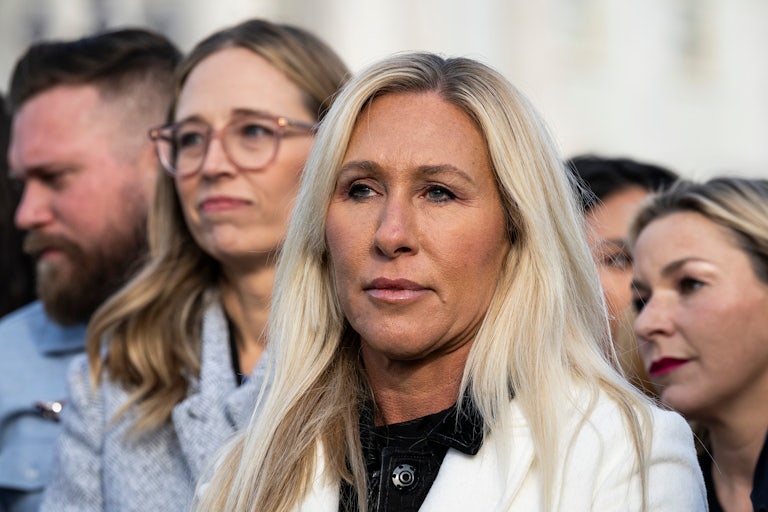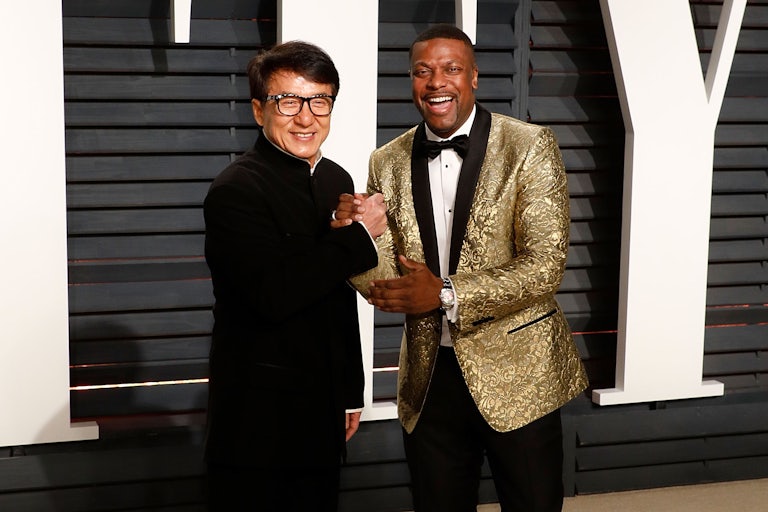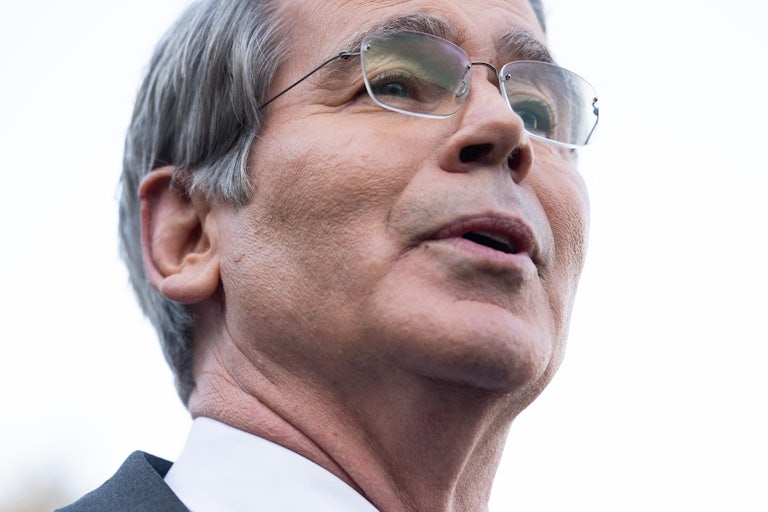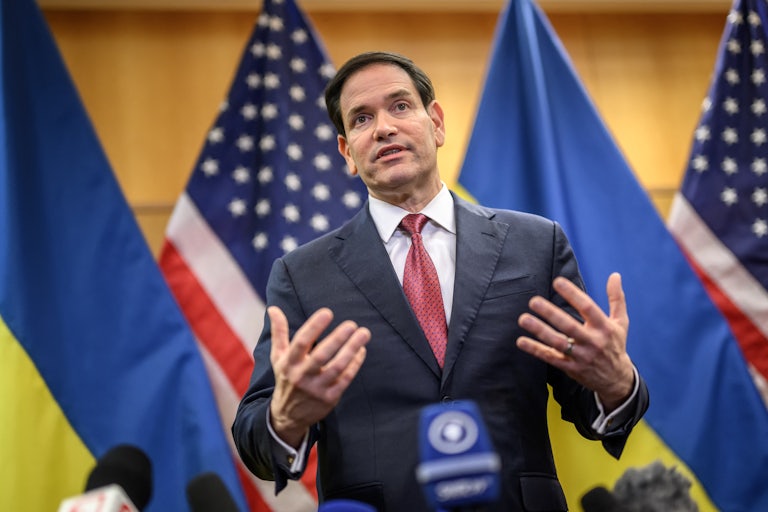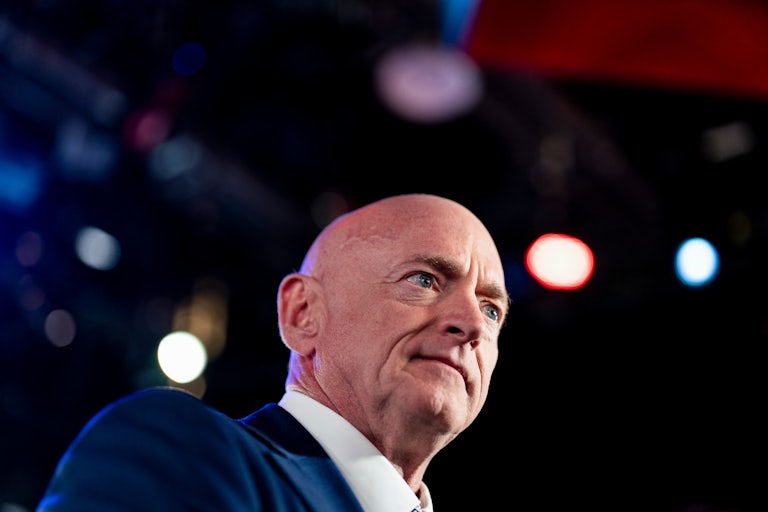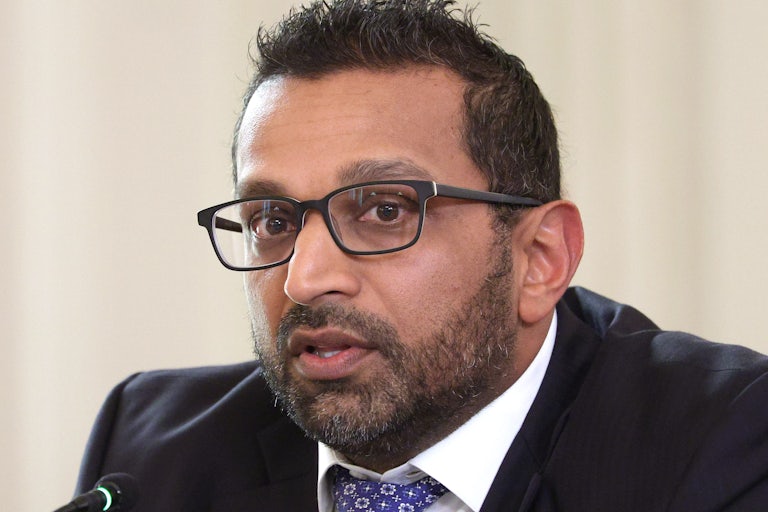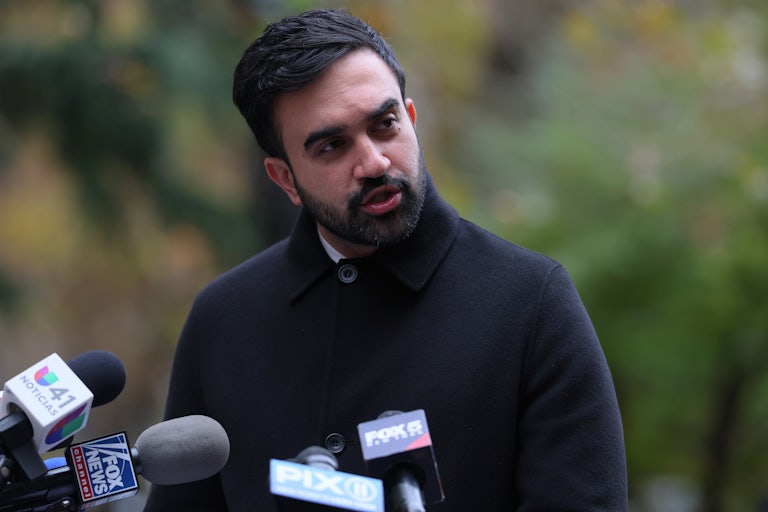Dems Eye New Way to Shake Up 2028 Primaries: Ranked-Choice Voting
Here’s how it could happen.
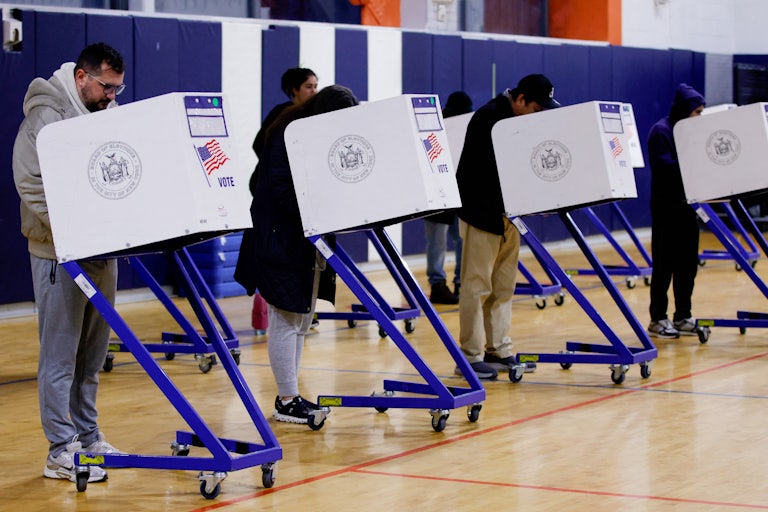
Democratic activists are looking to overhaul the party’s presidential primary process with ranked-choice voting.
Proponents of the idea have privately met with Democratic National Committee Chair Ken Martin and other leading party officials who want to see ranked-choice voting in action for 2028. Those behind the push include Representative Jamie Raskin, the nonprofit Fairvote Action, and Joe Biden pollster Celinda Lake.
Axios reports that ranked-choice supporters told a DNC breakfast meeting in D.C. that they believe it would unify and strengthen the party, prevent votes from being “wasted” after candidates withdraw, and encourage candidates to build coalitions. The publication quotes DNC members as being divided on the issue, with some being open and others thinking that it is best left to state parties.
Raskin told Axios that ranked-choice voting “favors positive politics rather than negative politics, and that’s a great thing for the Democratic Party primaries.”
“Oftentimes there’s a sense of acrimony and bitterness that can last decades. Think about the race between Hillary and Bernie Sanders,” Raskin added.
The change would only happen by getting past the DNC’s rules and bylaws committee, then the majority of the committee’s 450 members, and then state Democratic parties. Some states would also have to change their election laws. Some localities already use it for local and state elections, including Alaska, Maine, San Francisco, Minneapolis, and most famously, New York City, where Zohran Mamdani’s upstart campaign used ranked-choice voting to triumph in the Democratic mayoral primary.
Will the Democratic Party go for it? Party moderates might be skeptical, considering that in 2016 and 2020, the current system produced their preferred presidential nominees in Hillary Clinton and Joe Biden. But the 2016 primary fight also fueled discord between progressives and moderates as the contest between Sanders and Clinton went late into the primary process, with some blaming it for Clinton’s loss in the general election.
If the Democrats institute ranked-choice voting, it would certainly grab attention and give the party pro-democracy credentials, allowing more candidates a chance to win. But that may inspire pushback from the party’s old-guard—even as the Democrats continue to articulate a vision for the future.
